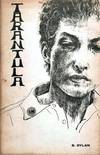![[Autograph letter signed]](https://d3525k1ryd2155.cloudfront.net/h/479/492/1429492479.1.m.jpg)
[Autograph letter signed]
by Guillermo Lobé (1785-1883)
- Used
- Condition
- See description
- Seller
-
The Hague, Netherlands
Payment Methods Accepted
About This Item
Confidential diplomatic letter, laying out the opportunities for a new Dutch-Cuban sugar trade company
Guillermo Lobé (1785-1883).
[Autograph letter signed]. Havana, June 18, 1827.
4to. 13, [3 blank] pp. Ink on laid paper, with a watercolour drawing on a larger 4to loose wove paper sheet dated 1827.
Important confidential manuscript letter by the Dutch-Spanish diplomat Guillermo Lobé, in which he lays out the commercial and geo-political situation of Cuba in detail. The letter is accompanied by a drawing that possibly depicts a valley in Cuba and is dated on verso in ink 1827.
In the densely written 12-page letter he writes to an anonymous "old family friend", who he met in Antwerp. Apparently this friend was was planning to establish a Dutch-Cuban sugar trade company or "Société du Commerce" and asked Lobé to provide him with information about the international trade in Cuba and Havana in particular. Lobé praises the commercial opportunities of the island and predicts a great future for its economy, and stresses that every European nation will soon also discover this potential and will want to take advantage. He continues to sketch the geo-political situation of Cuba, noting that the power of Spain has passed and England and the United States have taken advantage, which is a bad situation for Europe. However, this crisis also provides opportunities to those who dare to take it. He provides details about interest percentages and production figures of Cuba. According to Lobé the regulated production export total amounted to 400,000 crates annually, of which from Havana 300,000. 20% of this went to the Kingdom of The Netherlands (including Belgium at that time): 10.000 to Rotterdam, 20.000 to Amsterdam and 50.000 to Antwerp. Guillermo Lobé was deeply involved in the European and American relations with Cuba. At the time of the present letter he was consul-general of The Netherlands to Cuba. He wrote two books on Cuba: Mémoire sur la culture du tabac dans l'île de Cuba (1845) and Cuba et les grandes puissances occidentales de l'Europe (1856). As is evident from the second title, he communicated on a high level with people in Europe and the US about the opportunities for exploitation of Cuban resources.
He was the son of Maurits Jacob Lobé, who was born in Amsterdam 1754 and was consul to The Netherlands in Cadiz since 1780. Maurits Jacob married Maria Manuela Ravina in Cadiz in 1789. Guillermo was their first child, fully named Guillermo ( Willem) Maria de la Sanctissima Trinidad Antonio Joseph Fernando Felix Ramon Pascual Juan Nepomuceno Lobé, born Cadiz May 30, 1790. He became consul to The Netherlands in Cadiz and Seville in 1815 and in 1821 a diplomatic manual appeared from his hand: Guide aux droits civils et commerciaux des étrangers en Espagne. In 1825 he became consul-general to The Netherlands in Havanna, Cuba. So at the time of the present letter he was just recently active on the island. A key task for Lobé in Cuba was to support and grow the trade with The Netherlands. The export of goods to The Netherlands in 1829 and 1830 totaled about a tenth of the total national production of Cuba, as Guillermo Lobé stated himself: "They bear in fruits of the country, an annual average value of 985,934 pesos, or about a tenth of the total. The main products are ironworks, nails, gin, cheeses, butter, thick fabrics of thread and lace. The manufactures introduced from this source in 1829 amounted to the value of 163,824 pesos and the groceries to 87,438, in 1830 they were 132,650 and 68,034 respectively. […] The establishment, in Havana, of a General Consul and agent of the Dutch company, must henceforth strengthen and multiply the commercial relations between the two countries." (De la Sagra).
Condition: one vertical fold, otherwise in excellent condition.
Reference: Ramón de la Sagra, Historia economico-politica y estadistica de la isla de Cuba. Habana, 1831, p. 208; for Guillermo Lobé see: Repertorium der Nederlandse vertegenwoordigers, residerende in het buitenland, 1584-1810, p. 415; for the Lobé family in Cuba see: Pablo Ortega del Cerro, Returning to Spain: Cuban elites' strategies for social promotion via the Naval College, 1845-1865, Universidad de Murcia 2018, pp. 299-300. Books by Lobé: Guide aux droits civils et commerciaux des étrangers en Espagne. Paris, 1821. Cuba et les grandes puissances occidentales de l'Europe [...] collection de brochures et de lettres adressées à Madrid. Paris, 1856. Mémoire sur la culture du tabac dans l'île de Cuba. Cayenne, 1845.
Reviews
(Log in or Create an Account first!)
Details
- Seller
- ARTEM
(NL)
- Seller's Inventory #
- 2121
- Title
- [Autograph letter signed]
- Author
- Guillermo Lobé (1785-1883)
- Format/Binding
- Ink on laid paper, with a watercolour drawing on a larger 4to loose wove paper sheet dated 1827
- Book Condition
- Used
- Quantity Available
- 1
- Place of Publication
- Havana
- Date Published
- June 18, 1827
- Pages
- 13, [3 blank] pp
- Size
- 4°
- Weight
- 0.00 lbs
- Keywords
- Cuba, West Indies, Sugar, Manuscript
- Bookseller catalogs
- Colonial History; West Indies; America; Economy; Manuscripts;
![[Autograph letter signed]](https://d3525k1ryd2155.cloudfront.net/h/479/492/1429492479.4.s.jpg)
